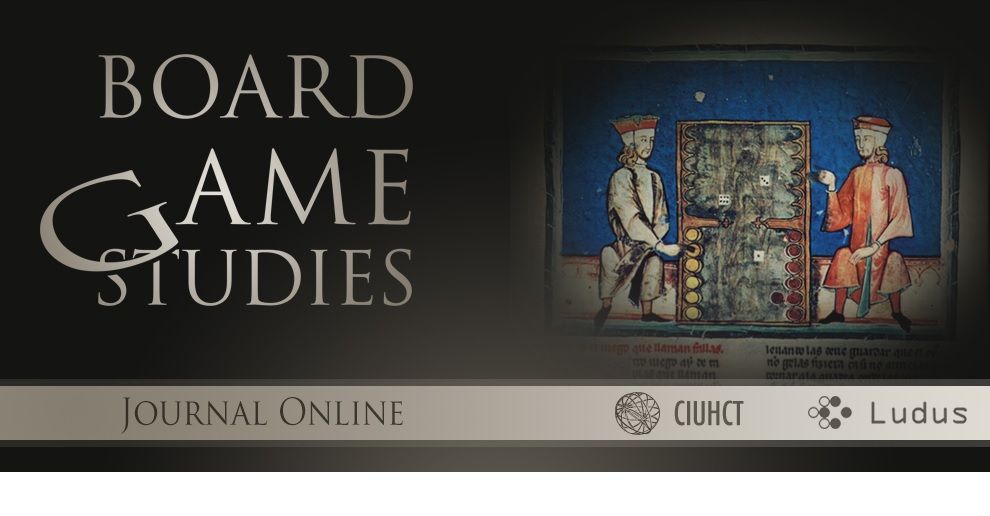
About us
Board Games Studies was first published in 1998, an initiative inspired by the colloquia
on board games held at Leiden University, the Netherlands, in 1995 and 1997. Five
institutions affiliated themselves with the journal: the Institut für Spielforschung und
Spielpädagogik in Salzburg, the International Institute for Asian Studies in Leiden, the
Russian Chess Museum in Moscow, the British Museum in London, and the Department
of Computer Science at the University of Maastricht. The journal, which was published
by CNWS Publications in Leiden on a yearly basis, was partially funded through the
assistance of patrons and boasted a modern layout, trilingual summaries and color plates.
The broad ambition of this journal required a continuous commitment from the editors,
who reviewed contributions in German, French and English, provided translations of
summaries for each article and, in several cases, collaborated extensively with authors to
develop manuscripts that were to the academic standards of the publication.
The journal had a trial run of three years, after which the format, content and
review process was evaluated. The authors of the articles integrated wide-ranging
literature necessary for a comprehensive understanding of particular games.
Contributions from different disciplines — including psychology, computer science,
philology, classical archaeology and history — allowed for a better historical and
systematic understanding of board games to emerge. Starting in 2000, a section with a
translation of primary sources was added. Book reviews and research notes further
complemented the multi-facetted contents. Its first ambition, to serve as a platform for the
publication of board games research, was met quickly, while gradually the journal gained
prominence among researchers by publishing seminal historical overviews.
The colloquia continued from 1995 onwards, moving from a biennial to a yearly
schedule. The host institution was expanded beyond Leiden to universities and museums
throughout Europe as well as Jerusalem, Philadelphia and, in 2013, the Azores. The
colloquia continue to gather an enthusiastic group of scholars, players and collectors.
Despite the institutional affiliations and a group of patrons, the production of the journal
became financially and logistically problematic with CNWS no longer able to serve as a
publisher. Reluctantly, the paper version of the journal was discontinued after volume 7
was published in 2004.
The possibility of an online version of the journal had been explored with the
online publication of the first issues, a decision that greatly assisted the dissemination of
knowledge accumulated in those early volumes. The next step, an online journal that
operates again as a platform for recent board games research, was not far away but
required the skills and enthusiasm of previous and new editors to materialize.
In these last fifteen years, the study of board games has gained momentum and
this journal will not only showcase new results but, most of all, will encourage and
publicize the work of the dedicated researchers in this field.
Alex de Voogt
Starting with Volume 10, BGSj will be published by Dgruyter.